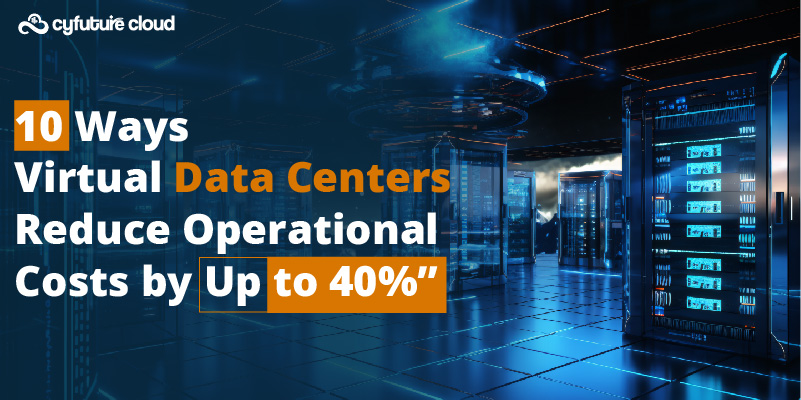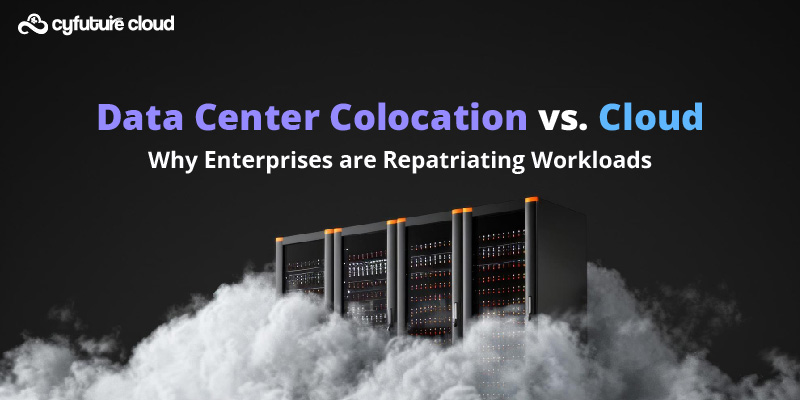Table of Contents
- Introduction
- Exponential Growth in Cloud Storage Adoption
- AI & Machine Learning Will Transform Cloud Storage Management
- Edge Computing & Hybrid Cloud Storage Will Dominate
- Quantum Computing & Ultra-Fast Cloud Storage
- Enhanced Security & Privacy in Cloud Storage
- Sustainable & Green Cloud Storage
- The Role of Serverless & Autonomous Cloud Storage
- Conclusion: Is Your Business Ready for the Future of Cloud Storage?
Introduction
Cloud storage has revolutionized how businesses and individuals store, access, and manage data. From small startups to global enterprises, organizations rely on cloud storage for scalability, cost-efficiency, and security. But as technology evolves, so does cloud storage.
Cloud storage has become an integral part of modern business operations, offering scalable, cost-effective, and secure solutions for managing data. As organizations generate and rely on increasingly vast amounts of data, the cloud storage industry is poised for significant advancements in the next five years. With innovations in artificial intelligence (AI), sustainability, edge computing, and other technologies, the future of cloud storage will redefine how businesses store, access, and utilize their data.
Over the next five years, advancements in AI, edge computing, quantum storage, and cybersecurity will redefine cloud storage capabilities. Businesses must stay ahead of these trends to optimize performance, reduce costs, and safeguard their data.
In this blog, we’ll explore the key trends and developments expected to shape the future of cloud storage from current year 2025 to 2030.

Exponential Growth in Cloud Storage Adoption
The global cloud storage market is projected to grow from $124.57 billion in current year to $273.05 billion by 2029, at a compound annual growth rate (CAGR) of 21.7%1. This growth is driven by several factors:
- Data Explosion: Currently individuals and organizations will generate around 463 exabytes of data daily. This massive data growth necessitates scalable storage solutions.
- Cost Efficiency: Cloud storage eliminates the need for physical data centers, reducing operational costs.
- Globalization and Remote Work: Businesses increasingly rely on cloud-based solutions for collaboration and accessibility across geographies.
As businesses continue to digitize their operations, cloud storage adoption will only accelerate.
In this blog, we’ll explore:
✔ Key trends shaping the future of cloud storage
✔ How AI and automation will enhance storage management
✔ The rise of edge and hybrid cloud storage
✔ Security innovations to combat cyber threats
✔ How Cyfuture Cloud is preparing for the next-gen storage revolution
Let’s dive in!
AI & Machine Learning Will Transform Cloud Storage Management
AI-Driven Storage Optimization
AI will play a crucial role in automating storage management, reducing costs, and improving efficiency. Key developments include:
- Predictive Storage Scaling: AI will analyze usage patterns and auto-scale storage resources before demand spikes.
- Smart Data Tiering: AI will automatically move data between hot, warm, and cold storage based on access frequency.
- Anomaly Detection: AI-powered security will identify ransomware attacks and unusual data access in real time.
Automated Cost Management
- AI will predict storage costs and recommend cost-saving measures.
- Unused data cleanup: AI will detect and delete redundant or obsolete files to save space.
How Cyfuture Cloud is Leading the Way:
Cyfuture Cloud integrates AI-powered storage analytics to optimize performance and costs, ensuring businesses only pay for what they use.
Edge Computing & Hybrid Cloud Storage Will Dominate
The integration of edge computing with cloud storage is set to redefine how data is processed, stored, and accessed. As businesses generate increasingly vast amounts of data, edge computing offers a transformative solution by bringing computation and storage closer to the data’s origin. This distributed model addresses challenges such as latency, bandwidth constraints, and real-time processing needs, while complementing traditional cloud storage systems. Over the next five years, edge computing will significantly impact cloud storage demand, design, and functionality in multiple ways.
Reduced Latency and Improved Real-Time Processing
Edge computing minimizes latency by processing data locally rather than relying on centralized cloud server hosting located far away. This is particularly critical for applications requiring real-time responses, such as:
- Autonomous Vehicles: A delay of even milliseconds can lead to disastrous outcomes when processing data for navigation or obstacle detection.
- Healthcare Devices: Wearables and smart medical devices need instantaneous processing to provide accurate health metrics or alerts.
- Gaming Applications: Gamers demand low-latency environments for seamless experiences.
By integrating edge computing, only essential processed data is sent to the cloud for long-term storage or analysis, reducing the load on cloud systems while improving responsiveness.
Optimized Bandwidth Usage
The proliferation of Internet of Things (IoT) devices is generating unprecedented volumes of data. Transmitting all this raw data to centralized cloud servers is inefficient and costly due to bandwidth limitations. Edge computing addresses this issue by:
- Local Data Filtering: Processing raw data locally ensures that only relevant information is transmitted to the cloud.
- Bandwidth Cost Reduction: By reducing unnecessary data transfers, businesses can save on bandwidth expenses while maintaining operational efficiency.
This optimization ensures that cloud storage systems are used more strategically for archival and analytics purposes.
Enhanced Data Security and Privacy
Edge computing improves security by decentralizing data processing:
- Localized Data Processing: Sensitive information can be processed locally on edge devices without being transmitted over potentially insecure networks.
- Reduced Attack Surface: Unlike centralized cloud systems that aggregate massive amounts of data in one location, edge devices distribute data across multiple nodes, making it harder for attackers to compromise large datasets.
However, while edge computing enhances privacy for localized processing, integrating it with cloud storage requires robust security protocols to ensure seamless transitions between edge and cloud environments.
Evolving Cloud Storage Design
The integration of edge computing will drive changes in how cloud storage systems are designed:
- Hybrid Architectures: Cloud providers will increasingly adopt hybrid models where edge nodes act as extensions of centralized clouds. Services like AWS Outposts and Azure Stack already exemplify this trend.
- Converged Infrastructure: Cloud vendors will bundle edge hardware and software into their offerings to ensure seamless interoperability between edge systems and traditional cloud environments.
- Containerization: Technologies like Kubernetes enable portable workloads across edge and cloud environments, simplifying deployment and scaling.
These advancements will ensure that businesses can leverage both edge computing and centralized clouds efficiently.
Growth in Edge-Specific Applications
Edge computing’s integration with cloud storage will enable new classes of applications:
- Smart Cities: Sensors deployed across cities can process local data (e.g., traffic patterns or energy usage) at the edge while storing aggregated insights in the cloud.
- Retail Analytics: Edge devices can process customer behavior data locally in stores while transmitting broader trends to the cloud for strategic analysis.
- Manufacturing Optimization: Real-time analytics on factory floors can improve production efficiency while long-term data is stored in the cloud for predictive maintenance.
These applications highlight the complementary roles of edge computing and cloud storage in driving innovation.
Impact of 5G Technology
The rollout of 5G networks will further enhance edge-cloud integration:
- High-Speed Connectivity: 5G enables faster transmission between edge devices and cloud servers, improving real-time processing capabilities.
- Low-Latency Applications: Industries such as finance (e.g., high-frequency trading) and healthcare (e.g., remote surgeries) will benefit from 5G-powered edge solutions combined with centralized storage.
The synergy between 5G cloud computing will unlock new possibilities for businesses relying on cloud infrastructure.
Sustainability Benefits
Edge computing contributes to sustainability goals by reducing reliance on centralized data centers:
- Energy Efficiency: Localized processing reduces energy consumption associated with transmitting large datasets over long distances.
- Decentralized Power Usage: Distributed workloads minimize the environmental impact of running massive centralized facilities.
Cloud providers are also adopting green practices like renewable energy usage to align with sustainability trends.
Challenges in Edge Integration
While promising, integrating edge computing with cloud storage presents challenges:
- Complexity in Management: Managing distributed systems across edge nodes and centralized clouds requires sophisticated orchestration tools.
- Data Consistency Issues: Ensuring consistent datasets across decentralized nodes and centralized storage systems remains a technical hurdle.
- Security Concerns at the Edge: Public-facing edge devices may be more vulnerable to attacks compared to secure centralized clouds.
Addressing these challenges will require innovations in orchestration platforms, security protocols, and hybrid architecture designs.
Edge computing integration is poised to transform the future of cloud storage over the next five years. By addressing latency issues, optimizing bandwidth usage, enhancing security, and enabling new applications, edge computing complements traditional cloud systems while reshaping their functionality. As technologies like 5G roll out and IoT adoption accelerates, businesses can expect more seamless collaboration between localized processing at the edge and centralized analytics in the cloud.
However, this transformation also brings challenges related to management complexity and security that must be addressed proactively. For organizations looking to stay ahead in this evolving landscape, investing in hybrid architectures, containerization technologies, and robust security measures will be critical.
In essence, the integration of edge computing with cloud storage represents not just a technological shift but a strategic opportunity for businesses to innovate while optimizing efficiency in an increasingly connected world.
Quantum Computing & Ultra-Fast Cloud Storage
Quantum Storage Breakthroughs
- Quantum encryption will make cloud storage virtually unhackable.
- Faster data retrieval using quantum algorithms.
DNA Data Storage (Experimental but Promising)
- Research is underway to store data in synthetic DNA, offering unprecedented density and longevity.
Cyfuture’s Future-Ready Infrastructure:
At Cyfuture Cloud, we’re not just keeping pace with cloud storage evolution—we’re engineering its future. Our investment in next-generation storage technologies ensures businesses can scale seamlessly, secure data proactively, and harness cutting-edge innovations before they become mainstream.
How We’re Building Tomorrow’s Storage Today:
- AI-Native Storage Architecture
- Our cloud infrastructure embeds Cyfuture.AI at every layer, enabling:
- Self-optimizing storage pools that automatically balance performance/cost
- Predictive hardware maintenance to prevent downtime
- Real-time data tiering (NVMe for hot data, glacier for archives)
- Our cloud infrastructure embeds Cyfuture.AI at every layer, enabling:
- Quantum-Resilient Foundations
- Already implementing:
- Post-quantum cryptography (NIST-standard algorithms)
- Quantum-key distribution (QKD)-compatible networks for future integration
- AI-driven encryption agility to transition seamlessly as standards evolve
- Already implementing:
- Hyper-Converged Edge Storage
- Deployable micro-data centers with:
- Unified management via Cyfuture.AI’s central brain
- Sub-5ms latency for IoT/autonomous systems
- Autonomous sync to core cloud or multi-cloud
- Deployable micro-data centers with:
- Sustainable by Design
- Our AI-powered energy optimization delivers:
- 30% lower PUE (Power Usage Effectiveness) than industry averages
- Carbon-aware data placement (automatically routes to greenest zones)
- TCO modeling that factors in ESG goals
- Our AI-powered energy optimization delivers:
- Interoperability Ecosystem
- Future-proof APIs for:
- Blockchain storage integrations
- DNA data storage readiness (partner labs testing)
- Web3 protocols like IPFS
- Future-proof APIs for:
Why This Matters for Your Business:
- No Rip-and-Replace Upgrades: Our modular design lets you adopt innovations without overhauling systems.
- First-Mover Advantage: Early access to technologies like computational storage (processing inside SSDs).
- Risk Mitigation: Built-in compliance with emerging regulations (EU Data Act, AI Act).
Example: A healthcare client leveraged our AI-optimized cold storage to cut genomic data archival costs by 52% while maintaining instant retrieval for research.
Enhanced Security & Privacy in Cloud Storage
Zero-Trust Security Models
- Continuous authentication ensures only authorized users access data.
- AI-driven threat detection will block cyberattacks before they happen.
Blockchain for Secure Cloud Storage
- Decentralized storage (like IPFS) will reduce reliance on single providers.
- Immutable audit logs will enhance compliance tracking.
Cyfuture Cloud’s Security Edge:
Military-grade encryption, AI-powered threat detection, and GDPR/HIPAA-compliant storage ensure data remains secure.
Sustainable & Green Cloud Storage
Energy-Efficient Data Centers
- Renewable energy-powered cloud storage will reduce carbon footprints.
- Liquid cooling & AI-driven energy optimization will cut power consumption.
Cold Storage for Long-Term Data Retention
- Low-power archival solutions for compliance and backup data.
Cyfuture’s Green Cloud Initiative:
Eco-friendly data centers and carbon-neutral storage solutions for sustainable business growth.
The Role of Serverless & Autonomous Cloud Storage
Serverless Storage Growth
- Pay-per-use models will eliminate idle storage costs.
- Auto-scaling without manual intervention.
Self-Healing Storage Systems
- AI will automatically detect and repair corrupted files.
- Predictive maintenance will prevent downtime.
Cyfuture Cloud’s Autonomous Cloud Vision:
Fully automated, self-managing cloud storage for hassle-free operations.
Conclusion: Is Your Business Ready for the Future of Cloud Storage?
The next five years will bring AI-driven automation, edge computing, quantum storage, and ultra-secure decentralized solutions. Companies that adopt these innovations early will gain a competitive edge in speed, security, and cost-efficiency.
Why Choose Cyfuture Cloud?
- AI-Optimized Storage – Smart scaling & cost management.
- Hybrid & Edge Solutions – Faster access, lower latency.
- Military-Grade Security – AI-powered threat detection.
- Sustainable Cloud Storage – Eco-friendly & compliant.
Future-proof your data strategy with Cyfuture Cloud!
Recent Post
Send this to a friend

 Server
Colocation
Server
Colocation CDN
Network
CDN
Network Linux
Cloud Hosting
Linux
Cloud Hosting Kubernetes
Kubernetes Pricing
Calculator
Pricing
Calculator
 Power
Power
 Utilities
Utilities VMware
Private Cloud
VMware
Private Cloud VMware
on AWS
VMware
on AWS VMware
on Azure
VMware
on Azure Service
Level Agreement
Service
Level Agreement 




















